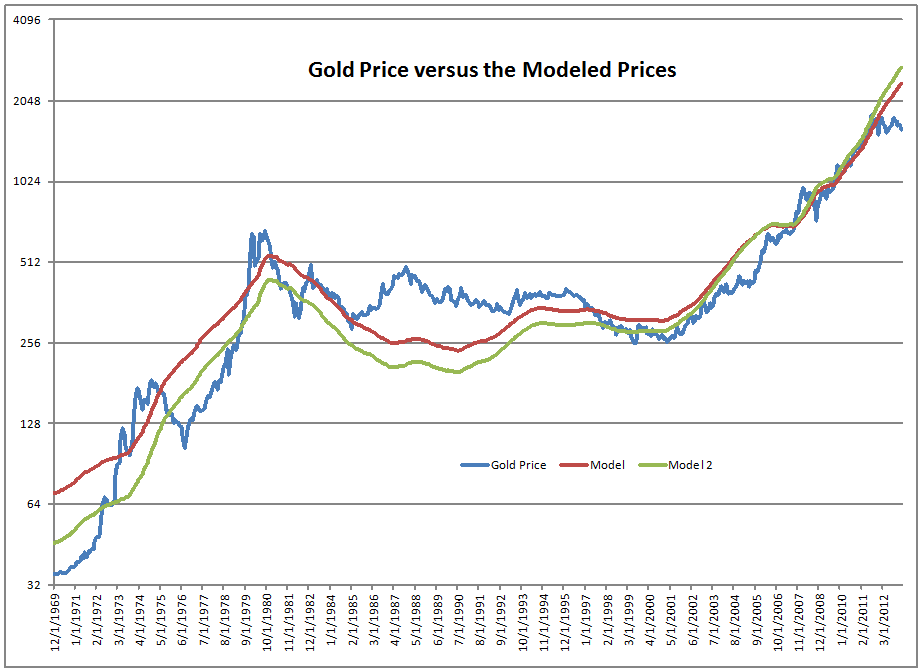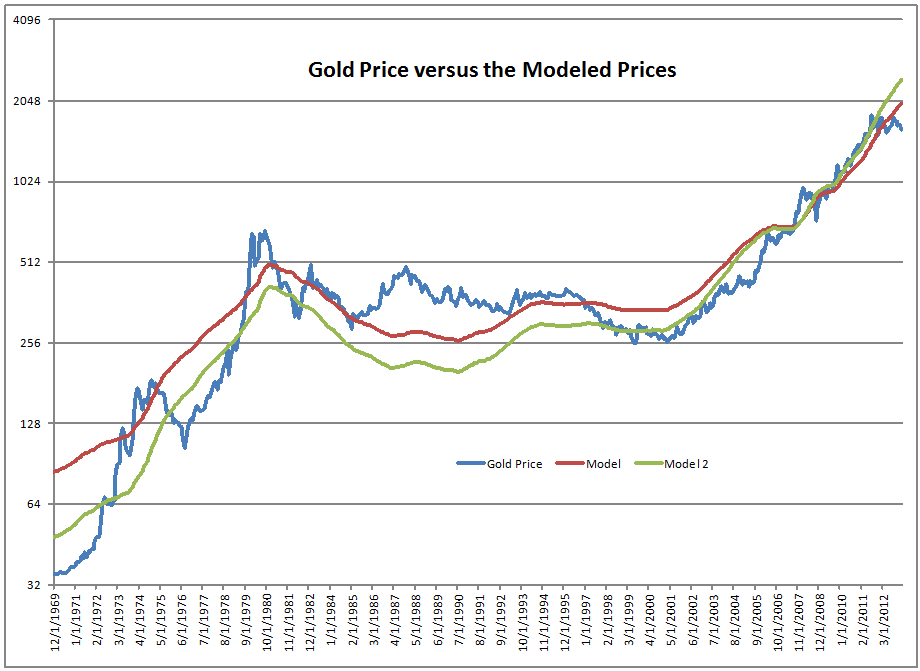I left one small question for last; I gave a partial answer to this one at the conference.? I think I was the only one that said much on it.? Here it is:
Where does academic theory fail in finance and in economics?
Little questions, big answers.? How do you eat an elephant?? One bite at a time.? Let’s start with math in economics:
1) We have to reduce the complex math in economics — I think we are trying to apply math where it is not valid.? As such, the true strength of ability to explain what is going on decreases, while economic becomes an odd “inside game” for a funny group of mathematicians trying to make sense of an idealized world that bears little resemblance to our own world.
2) The next piece is on maximizing utility or profits.? Maximizing takes work, assuming one can even do it.? Work is a negative, so people conserve on that.? Most of us know this: we look for a solution that is “good enough,” and do it.? That means we don’t maximize utility, and the pretty equations don’t represent reality.
What’s worse is that men care more about relative results than absolute results.? We would rather be kings over an impoverished realm rather than middle class in a wealthy country.? We are worse than greedy; we are envious.
It’s even worse for firms.? There you have agency problems where the management often has its own goals that do not maximize profits, or their net present value, but maximize the benefits they receive.? Boards are frequently a cover for management, rather than advocates for the shareholders.
Regardless, since firms don’t maximize, the elegant math does not work. Putting it simply, if you want to understand economics better, don’t listen to economists — become a businessman.? An ordinary businessman knows more about how the world works than a neoclassical economist.
3) One of the beauties of a capitalist economy is its dynamism.? It adapts to changing needs and desires.? The variation is considerable; as an example, go through your supermarket and try to count the total number of different tomato products.? Or? look at the amazing degree of variety in a major tools catalog.? Or go to Costco, Walmart, Home Depot, Ikea, and look at the incredible variety that exists under one roof.
But that level of variety cannot be mathematically accommodated by economics.? They have to aggregate the complexity into categories, and a lot of the reality is lost in the process.? That is why I distrust? many economic aggregates, such as inflation, GDP, etc.? Politicians find “economists” to suit their political ends, and they come up with complex reasoning for why measured inflation is higher than it should be, inequality is rising, etc.? You can find an economic advocate for almost anything.
Macroeconomics
4) Because of the aggregation problem, the link between microeconomics and macroeconomics is made weak, especially since utility cannot be compared across any two people, and yet the economists mumble, and implicitly do it anyway.
5) At least with microeconomics, we can agree that demand falls as prices rise, and supply rises as prices rise.? But with macroeconomics, there is little agreement as to whether a given policy aids real growth or not.? Modern neoclassical economics is to me a bunch of sorcerer’s apprentices playing around with very large and crude tools that they think can affect the economy, only to find the results are not what they expect.? Somewhere, economists got the naive idea that they could eliminate the boom-bust cycle, only to find that by eliminating minor busts, they set up the conditions for growth in indebtedness, leading to a huge bust.? Far better to be McChesney Martin, or Volcker, who let recessions do their work, than slaves of the government who did not — Burns, Miller, Greenspan or Bernanke.
Take inflation as an example.? Does printing more money, or creating more credit boost asset prices, product & services prices, both, or neither?? The answer to this is not clear.? The Fed has taken many actions over the past 30 years, using a model that assumes tight relationships between short interest rates and inflation/ labor unemployment.? The evidence for these relationships are not evident, except at the extremes.
6) The idea that running deficits to “stimulate” the economy is questionable.? Debts have to be paid back, repudiated or inflated away, any one of which would make business and consumers less confident.? Further, the way the the money is spent makes a great deal of difference.? Much government spending inhibits or does not help economic growth; think of the complexity of the tax code — a recipe for wasted time, and unneeded social enginerring.? Some government spending does aid economic growth, where it lowers the costs of consumption or production — critical infrastructure projects, etc.? But those are rare.? If it were really needed, lower level governments or private industry would do it.
The thing is, most of the deficit spending has not been useful; there’s no economic reason to run such large deficits.? If we were rebuilding all of our aging infrastructure, that would be one thing, but the crazy quilt of tax breaks and subsidies affects behavior, but does not compound and aid growth.
7) We need to admit that culture is not a neutral matter.? Some cultures will have faster economic growth, and others will be slower.? There is no universal culture, no generic economic man.? Some cultures are more enterprising than others.? That has a big impact on growth quite apart from resources, population, education, etc.
8 ) Whether the money is tied to gold or fiat, banking must be tightly regulated.? Solvency of all financial institutions should be tightly regulated.? With financials risks arise when the is too much leverage, and too much leverage that is layered.? Things should be structured such that there is no possibility of dominoes knocking over other dominoes.
- Limit leverage
- Increase liquidity of assets vs liabilities
- Forbid lending to/investing in other financials
- Derivatives should be regulated as insurance, insurable interest must exist, which means that bona fide hedgers must initiate all transactions.
On Finance
9) The first thing to realize is that a mean-variance model for investments is loopy.? First, we can’t estimate the mean or the variance, much less the covariance terms.? There is also good evidence that variances are infinite, or close to it.? Thus the concept of an efficient frontier is bogus.? Far better to try to estimate crudely the likely forward returns on a cash flow basis, the way a businessman would, and weakly factor in the uncertainty of the forecasts.
10) Thus, beta is not risk, and volatility is not risk.? At least at present, until the low volatility funds get too big, there seems to be an anomaly where low volatility equity investing beats high volatility equity investing.? This is consistent with my theory that the relationship of risk and return is non-linear.? Taking no risk brings no return; taking moderate risk brings decent return; taking high risks brings low returns.? There is a sweet spot of prudent risk-taking that brings the best returns on average.
11) Multiple-player game theory indicates that to win, you assemble a coalition with more than 50% of all of the power, and you get disproportionate benefits.? Think about the poor buyer of a home in 2006, going into the closing with the deck staked against him.? Or think about forced arbitration of disputes on Wall Street, where the investors rarely win.
Complexity is not the friend of most ordinary economic actors.? Avoid it where you can.
12) Capital structure does matter; it is not irrelevant like Modigliani and Miller said.? Companies with low leverage tend to return more than companies with high leverage.? There are real costs to being in distress or near distress.
13) Markets can have non-linear feedback loops, like in October 1987, or the “Flash Crash.”? Markets are not inherently stable, and that is a good thing.? Instability shakes out weak players that are relying on a shaky funding base, leaving behind stronger players who understand risk.? It is not wise to try to eliminate the possibility of disasters occurring.? When you do that, pressures build up, and something worse occurs.? Better to let the market be free, and let stupid speculators get burned, so long as they aren’t regulated financial companies.
Ethics matters
14) Economics would be more valuable if it focused what is right, rather than what is “efficient.”? I know there will be differences of opinion here, but a discipline that focused on explicit and implicit fraud could be far more valuable than men who don’t have good models for:
- Inflation
- Asset Allocation
- GDP
- Unemployment
- and more
Imagine applying all of that intelligence to fair dealing in economic relationships, rather than vainly trying to stimulate the economy, and accomplishing nothing good.? It would be like the CFA Institute applied to the economy as a whole.



